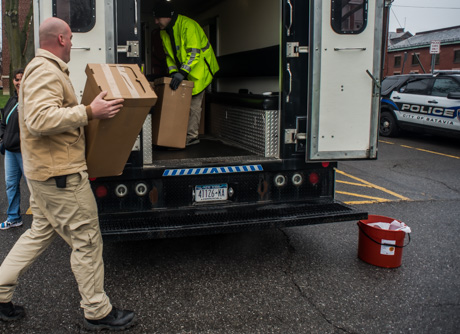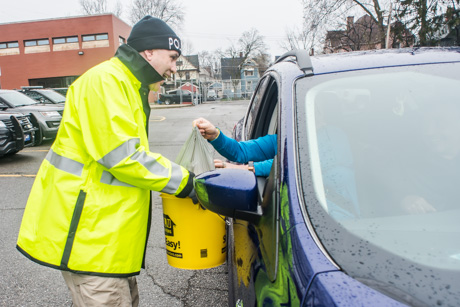Press release:
New York Sea Grant is encouraging the public to take expired, unused and unwanted pharmaceuticals to designated law enforcement agency locations on National Prescription Drug Take Back Day from 10 a.m. to 2 p.m. on April 28.
This federally designated day for collection of waste pharmaceuticals prevents the entry of such products as antibiotics, blood pressure regulators, pain medications, tranquilizers, and hormones, into state waterways and drinking supply sources.
In Genesee County, you can drop off unwanted drugs, no questions asked, at these locations:
- Batavia Police Department, 10 W. Main St., Batavia
- Genesee County Sheriff's Office is conducting a drop-off at the Pembroke Town Highway Barn at routes 5 and 77, East Pembroke
- Village of Le Roy Police Department, 3 W. Main St., Le Roy
“Proper disposal of unused medications is critically important to protect the public drinking water supply and the Great Lakes ecosystem," said Helen Domske, New York Sea Grant Coastal Education specialist, Buffalo.
"Take Back Day sites accepting these pharmaceuticals provide easily accessible drop-off points so everyone can do their part to protect New York’s waters.”
The New York Sea Grant website has information about the impact of keeping pharmaceuticals and personal care products out of the Great Lakes and other water sources. The results of a two-year research project, funded by New York Sea Grant, to examine the effectiveness of advanced water treatment options, environmental levels, and the potential effects of pharmaceuticals in New York waters are expected later this year.
“Research is increasing our understanding of the impact of bioactive chemical substances on the aquatic food web," said Domske, who is also the associate director of the Great Lakes Program at SUNY Buffalo.
"For example, research has recently documented the presence of antidepressants and their metabolites as well as antihistamines in fish such as largemouth bass, yellow perch, walleye and steelhead trout in the Niagara River. Although researchers believe the levels do not pose a threat to humans eating the fish, they are problematic and one of the reasons we do not want people to flush medicines down the toilet or drain."
Earlier this year, the New York State Department of Environmental Conservation announced a $2 million pilot Pharmaceutical Take-Back initiative that officially begins this month with pharmacies, hospitals, long-term care facilities and other sites participating in the collection and proper disposal of the unwanted, unused pharmaceuticals. Learn more here.
National Prescription Drug Take Back Days take place twice a year, in the spring and fall. According to the federal Drug Enforcement Agency, a record-setting collection of 912,305 pounds of expired, unused, and unwanted prescription drugs took place during the Fall 2017 National Prescription Drug Take Back Day.
New York Sea Grant maintains Great Lakes offices at SUNY Buffalo, Wayne County Cooperative Extension in Newark, and SUNY Oswego. For updates on New York Sea Grant activities, visit this website.
About New York Sea Grant
New York Sea Grant is a cooperative program of Cornell University and the State University of New York, and one of 33 university-based programs under the National Sea Grant College Program of the National Oceanic and Atmospheric Administration. Through a statewide network of integrated services, New York Sea Grant has been promoting coastal vitality, environmental sustainability, and citizen awareness of Great Lakes and marine resources since 1971.


